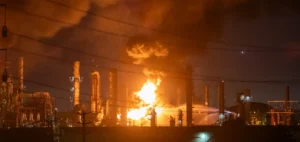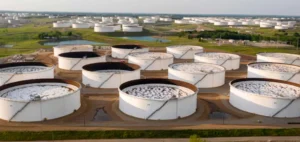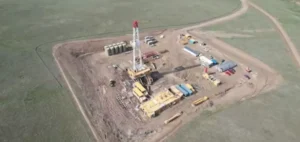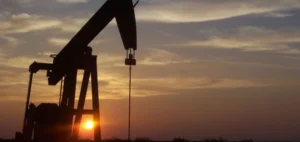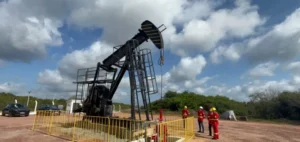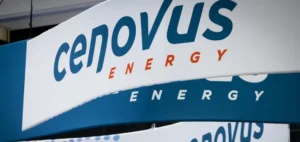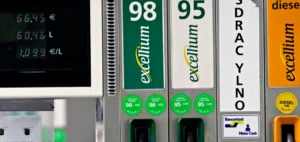Oil prices declined further Wednesday after the U.S. government’s surprise decision to release millions of additional barrels from its strategic reserve and in light of a possible build-up of U.S. crude inventories.
The oil market suffers a further decline
The oil market suffered a further decline, the barrel of Brent North Sea for delivery in April lost 1.18% to 84.57 dollars, while its U.S. equivalent, the barrel of West Texas Intermediate (WTI) for delivery in March, fell by 1.39% to 77.96 dollars. This trend is the result of the U.S. government’s surprise decision to release millions more barrels from its strategic reserve.
U.S. government puts 26 million barrels up for sale
The U.S. government has decided to release 26 million barrels from the U.S. Strategic Petroleum Reserve (SPR), in accordance with a law passed nearly a decade ago. This announcement came as a surprise to the market, given the previous commitments to fill the reserve. The U.S. government had initially planned not to use it, as 180 million barrels had already been released from the SPR last year.
For Carsten Fritsch of Commerzbank, last week’s announcement by Russia that it would cut its oil production by 500,000 barrels per day in March has certainly prompted the U.S. government to change its mind. This decision could reduce the pressure on the oil market, but the sale of the U.S. strategic reserve could counteract this effect.
Exceptional increase in U.S. commercial crude oil reserves
Meanwhile, an “exceptionally large” increase in U.S. commercial crude oil reserves, reported Tuesday by the industry trade group American Petroleum Institute (API), is contributing to lower crude prices. According to the API, crude oil inventories jumped by 10.51 million barrels last week, and gasoline inventories jumped by 846,000 barrels.
If this report is confirmed later in the day with weekly data from the U.S. Energy Information Agency (EIA), which is considered more reliable, oil prices could continue to fall, according to Craig Erlam, an analyst at Oanda. Analysts expect a more modest increase of 2 million barrels in commercial crude oil reserves and 1.5 million barrels in gasoline reserves, according to the median of a consensus compiled by Bloomberg.







